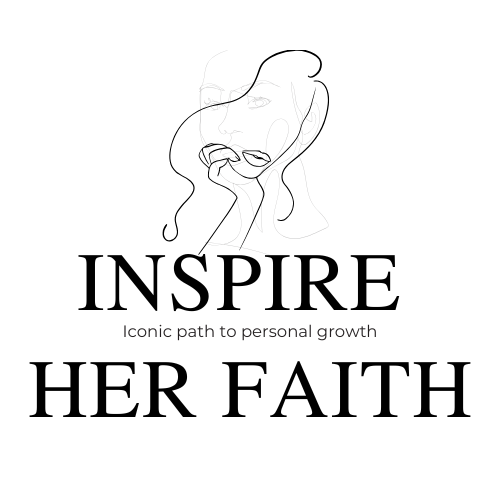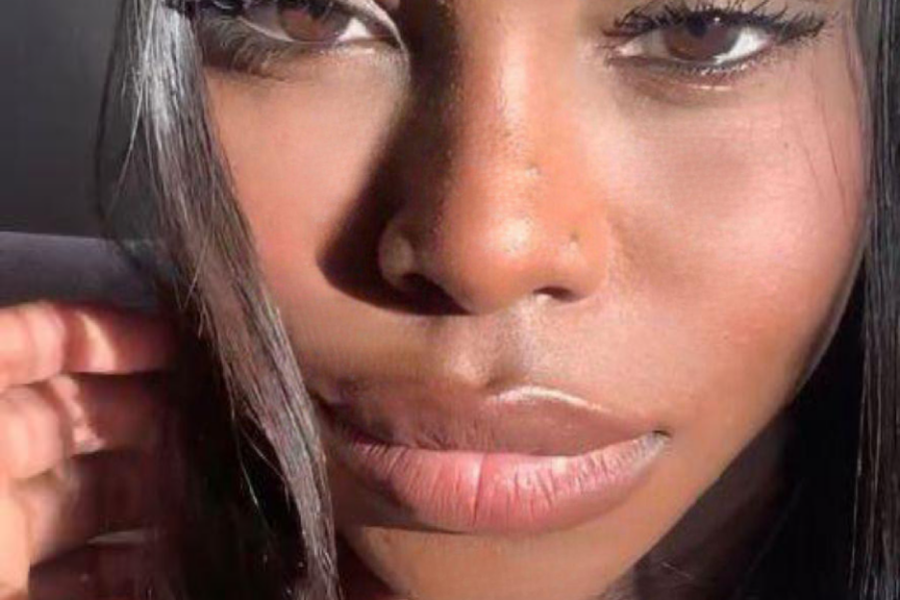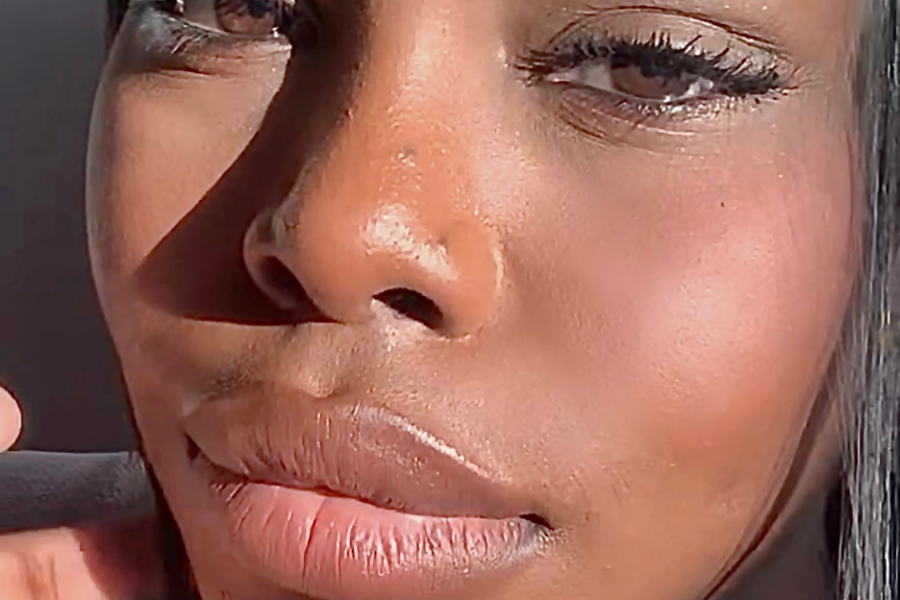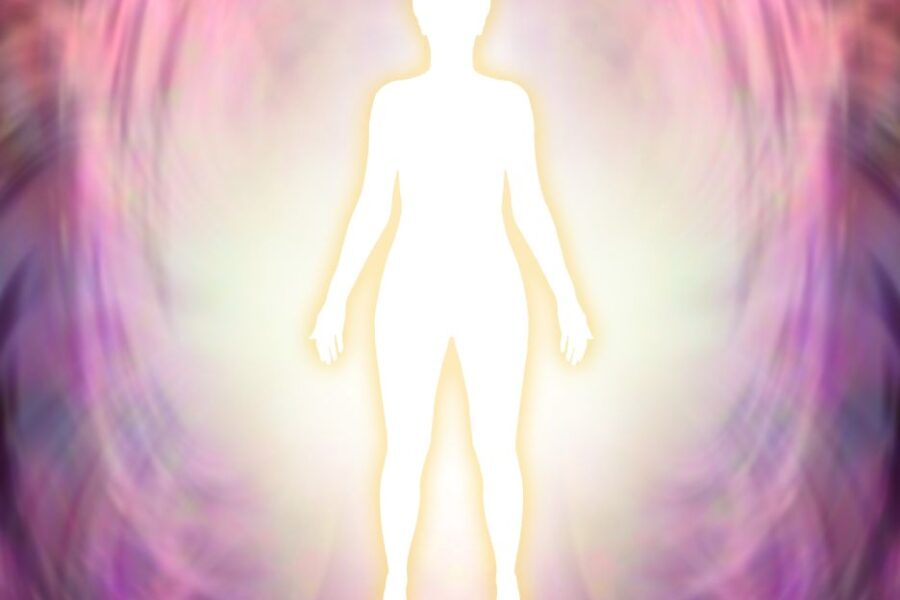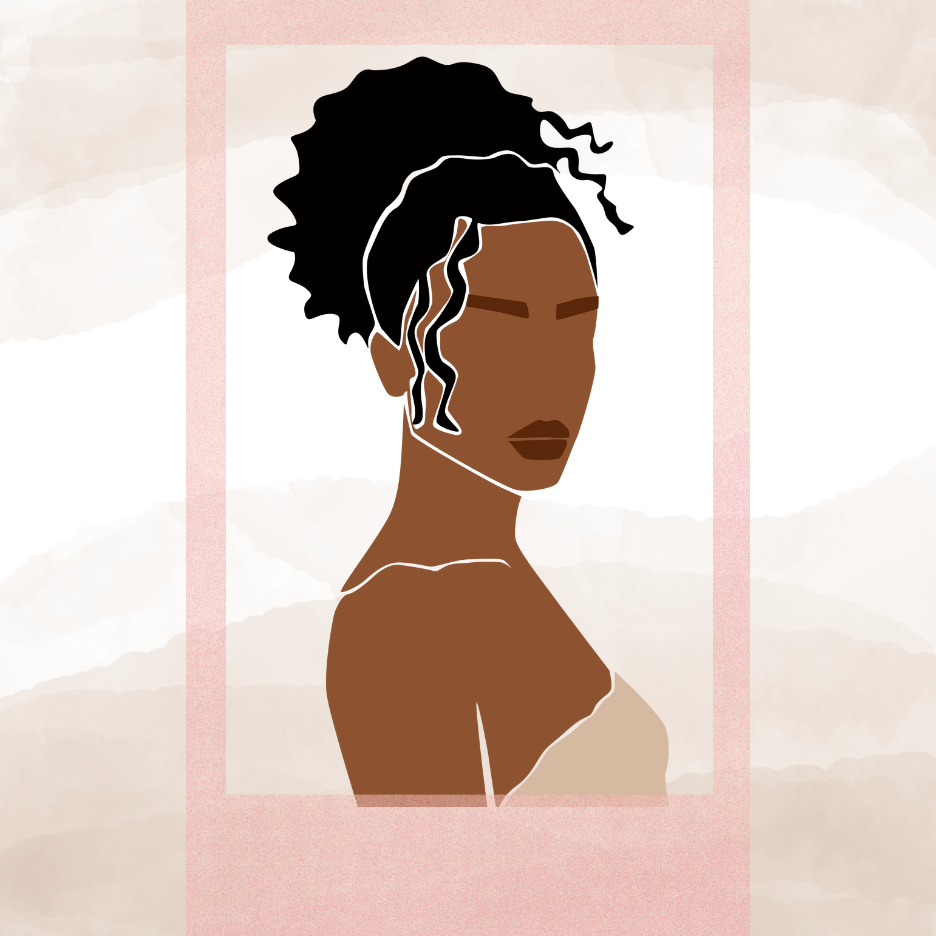
Have you ever found yourself acting differently on social media than in real life? If yes, did you end up losing your confidence? Or perhaps you kept checking your photos, reels, videos, or stories repeatedly, analyzing what you posted? Did you end up self-admiring during the process of re-watching your content? Read on to find out how being inauthentic online can harm you more than you might think.
Societal pressure to always showcase a perfect life can hold you back from reaching your full potential. This can block your blessings. Allah rewards those who practice modesty in their daily lives and remain authentic, rather than faking for views or likes.
Why I stopped Sharing across my Social Media Platforms
As someone who doesn’t wear the hijab, I have stopped posting on social media. I haven’t taken down my photos or highlights on Instagram. I just haven’t bothered to remove them. This is because part of me still wants to share—whether that is to myself, my followers, or newcomers.
Sometimes I revisit my Instagram highlights from 2018 to reminisce, since my camera roll is packed with nearly 70,000 photos and videos. So, I keep my content online just to be able to reminisce without sifting through my images.
I enjoy the memories tied to my content, and with my account being private, I feel in control of who sees it. However, when I post on Instagram, I sometimes catch myself rewatching them, before snapping back to the reality I love more than my online self.
Assuming most of my followers have a slight understanding of who I am, at least those who have been there for years, constantly consuming what I upload. While I appreciate the support, I can’t help but feel uneasy about it sometimes.
I love my reality more than the social media version because my real life is better than what I show “the world.” My heart is at peace with so many blessings every single day. Its so important to take time everyday to count our blessings and show gratitude to God.
However, this does not mean that I have the life I truly want—I don’t. But I am happy with what I have. I am thankful every day for the smallest conveniences.
Social Media Can Harm You More Than You Think
While online, be aware that highlighting only the glitz & glam side of your life can affect you. You have a responsibility each time you hit publish. I know lots of influencers like to hold others responsible for their own follower list as much as possible.
It’s not wrong, as you’re responsible for who you follow on social media. However, by choosing to be online, you take on more responsibility. You’re naturally influencing others, so be mindful that what you post isn’t harmful or manipulative to your followers.
Showcase your life authentically, be transparent about sponsored posts, engage with your followers. Help your followers understand your purpose behind sharing. You don’t have to explain every time you publish, but occasionally, help your followers understand what you are doing. I believe this applies only if you are a public figure and have chosen that path.
There are so many young people online nowadays. We all have a collective responsibility for the youth who are just starting out their lives. As an adult, people can easily understand you.
As I have mentioned before, I believe humans are very intelligent with strong minds. Tapping into your mind can make an individual extremely powerful when done the right way. So, most people get the gist. This is why I stress it—for the youth.
Instagram, TikTok, Facebook, Twitter—all these platforms have age limitations for users. However, teenagers are resourceful and will find a way to get online no matter the restrictions. Most of us have been there, right? As adults, we have a collective responsibility considering how many teenagers are online now more than ever.
Growing up, we didn’t have social media access like we do now. Sometimes I´m worried for the younger generation. One can only hope and pray that their parents shield them from the harmful side of social media.
Everything is accessible through a screen. So, it’s best that we do our part and remain authentic to ourselves when we choose to go there. Transparency goes a long way!
How Authenticity on social media can Benefit your Personal growth
While being authentic online, you not only help others but also build your own confidence. Sometimes when I’m online posting on my story’s day after day, I can feel a little bit drained. Not necessarily because I am not authentic, but because there are too many people watching.
The attention can be overwhelming. Here´s why: 1) I am not showing my full reality, and 2) I feel overwhelmed for no apparent reason. I imagine what it would be like if I showed who I truly am. However, it’s impossible to share everything online.
I have many online friends on social media. Like many, I try to state that I´m better in person. Mostly because I can’t show you the parts that have to be felt, heard, and seen. You can’t touch someone’s character knowing their heart and intention. This naturally applies, only, when you aren´t a public figure.
Less online activity over the past years has done wonders for my life. I get so much more done in my real life outside of social media!
Now, you might get confused when reading “being authentic online” and then “my real life outside social media.” These are two contrasts that are very different from each other.
In my real life (outside social media), I am the most authentic: then online, I have a persona. Which means I limit access of what followers gets to see. Some people are better understood in real life, and then there are those who can do both. I lack the latter. Which I am totally fine with, but this is mostly because I have chosen to sign out! Not because I can’t learn it.
However, if I had a job that required me to be more online, I would make sure to execute this position to the best of my ability. Right now, and for the past two years, it just hasn’t been on my radar.
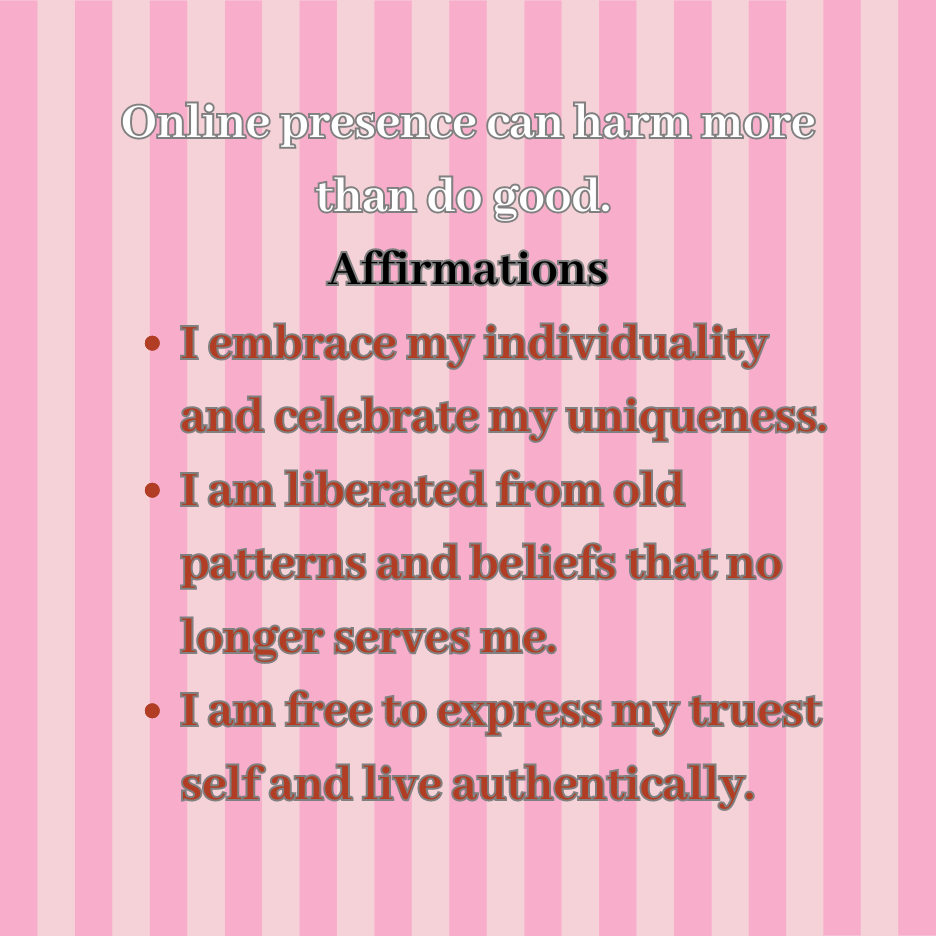
I have noticed over the past two months that I am more active on my different stories on social media, opening more, and I blame it on this blog. Upon launching this website, it really taught me that it is okay to be vulnerable online and talk on camera.
If I am going to take up space online again, at least I want to do it right this time by providing value and more authenticity. Not necessarily for myself, but to help others. When you heal and don’t stop healing, you tend to grow a lot mentally.
This evolving process can happen quickly, leading to the need to keep up with yourself as you grow. That is why I also believe I have a sense of responsibility to help those who need it the most.
Also, when you have healed from certain situations or traumas, the urge to stretch out a helping hand is stronger than ever because you now know how amazing it feels to reach a new level of self-improvement. It has caused me to evolve in ways I’ve never experienced before. I can openly say that I have never felt better in my entire life.
With healing comes responsibility for others. This has kept me up at night. I can clearly see how damaged some people are on social media. Cold messaging someone to offer help is neither classy nor appreciated by the person or group you reach out to.
This is one of the reasons I felt the urge to start this platform: to be transparent, authentic, and provide value to your life leading to your ultimate personal growth. You can read or listen (some articles has audios) peacefully at home, at work, or anywhere else you have an internet connection.
Social media is great when you are at peace with yourself and have a strong mind. Make sure to always be critical and mindful of what you consume.
The Evil Eye Will Affect You More Than You Think – Here’s How
As a Muslim, you gain nothing from constantly sharing your private life online. What often comes with it is extreme “bad luck,” or what is known as the “evil eye.” These seemingly harmless glances may not appear to be a big deal at first, but their impact on our hearts and minds can be significant. Let me share with you how oversharing on social media has affected me in the past.
As I mentioned earlier, I have been on and off social media since it started to peak around 2014-2015. There have been periods, lasting months or even years, where I naturally lost interest. I never really overshared looking back, however, there has been moments where I felt like being too passionate.
Nonetheless, I sometimes find myself shying away from compromises myself by displaying excessive materialism around the times I had the most engagement.
I have always been mindful of those who are less fortunate in this world. My heart is soft like that, and I am proudly vulnerable without shame. A strong heart has cried a lot to become strong.
Even when I was a student with nothing to my name, I felt uncomfortable sharing photos of everyday things like food or my frequent takeaways, knowing that some families struggle to feed their children. Anyway, this isn’t about food—let’s get back on track!
Oversharing on social media has led to anxiety in a way that isn’t normal or healthy. As humans, we all experience anxiety from time to time, but the wave of anxiety that follows my online activity—whether it’s sharing what I’m doing or posting a selfie on my stories—has led to a noticeable mental decline. I don’t even know where it comes from, but I have noticed a pattern.
This year, I tested this theory by exposing myself to my followers for an entire week, then going silent for another week. The difference was noticeable. When I’m active, I find myself repeatedly going over what I’ve posted, sometimes even admiring what I have posted online—like for instance, how happy I got when I managed to do my squats again after being injured on my knee the past year.
Self-admiration is so harmful to us according to Islamic teachings and can lead to great depression at times. When I said this website is all about transparency, I meant it. Here I am being completely honest. It’s necessary to share this for research purposes, but also to let you know that if you’ve ever been in the same situation, you’re not alone.
After a little while of posting—just a few hours—I start to feel anxious, almost as if bad luck suddenly looms over my life. I don’t excel at what I’m doing, and I experience setbacks without any apparent reason. On the weeks when I don’t share anything, I feel energized and happier. The anxious feeling fades away, and I become more productive.
Before I conducted this little experiment and threw myself under the bus like this, I wanted to understand why I felt this way. I couldn’t figure out where all this negative energy was coming from since I am so careful about who I let into my private life. I have many acquaintances but very few friends, so my circle is very small—I can count them on one hand.
This is a whole different topic that I’ll discuss later—look out for the article next week! I ultimately came to understand that some eyes that were watching me, did not necessarily have the best intentions for me, knowingly for unknowing. The evil eye can be casted without you even knowing what you have just done. It is truly dangerous.
How you can protect yourself from the evil eye
Social media can truly harm us, even through our own actions. Did you know that you can cast the evil eye on yourself? How can you protect yourself from it? First, let’s look at what Islam says about the evil eye.
Allah says that people can affect you by looking at you with envy, i.e., the evil eye, because they are jealous of you due to their hatred. This often starts within your circle, and in the modern world, social media has amplified its impact.
Many Muslims believe that ruqyah (spiritual healing) is the answer for protection—I did too, for a long time. But I learned that asking for ruqyah from others can have a worse effect on you than if you were affected by the evil eye.
“The one who asks for ruqyah from others is not included in the seventy thousand who will enter Paradise without being brought to account, due to the shortfall in their trust in Allah, because asking for ruqyah involves a kind of humiliation and need of the raaqi (the one who performs ruqyah), and part of complete trust and Tawheed is that the Muslim should not ask people for anything.” Reference.
So, what is the solution for protection against the evil eye if we can’t seek it from others? While seeking ruqyah is not considered haram (prohibited), there are plenty of other, easier and better ways to go about it.
Praying our fard (obligatory) salah can be immensely beneficial. Perfect your prayers! Dedicate time and energy to each prayer. For me, Fajr is the most challenging, especially during autumn and winter when fatigue often overtakes our minds.
I set my alarm as early as possible, but it is difficult to wake up that early when all you want to do is stay cozy in bed. However, forcing yourself up at that first alarm has its benefits. Drag yourself out of bed to the best of your ability, and Allah will reward you immensely for your efforts.
Sometimes I stay up all night until Fajr is due, especially during summer, because the fear of missing it weighs heavily on my heart. I am not perfect; there have been many times when I just don’t get up in the middle of the night if I fall asleep.
Making up your prayers is crucial. As soon as you wake up, make up those missed prayers, repent, and ask Allah for guidance to make it easier for you, and In Sha Allah, He (SWT) will provide a way for you.
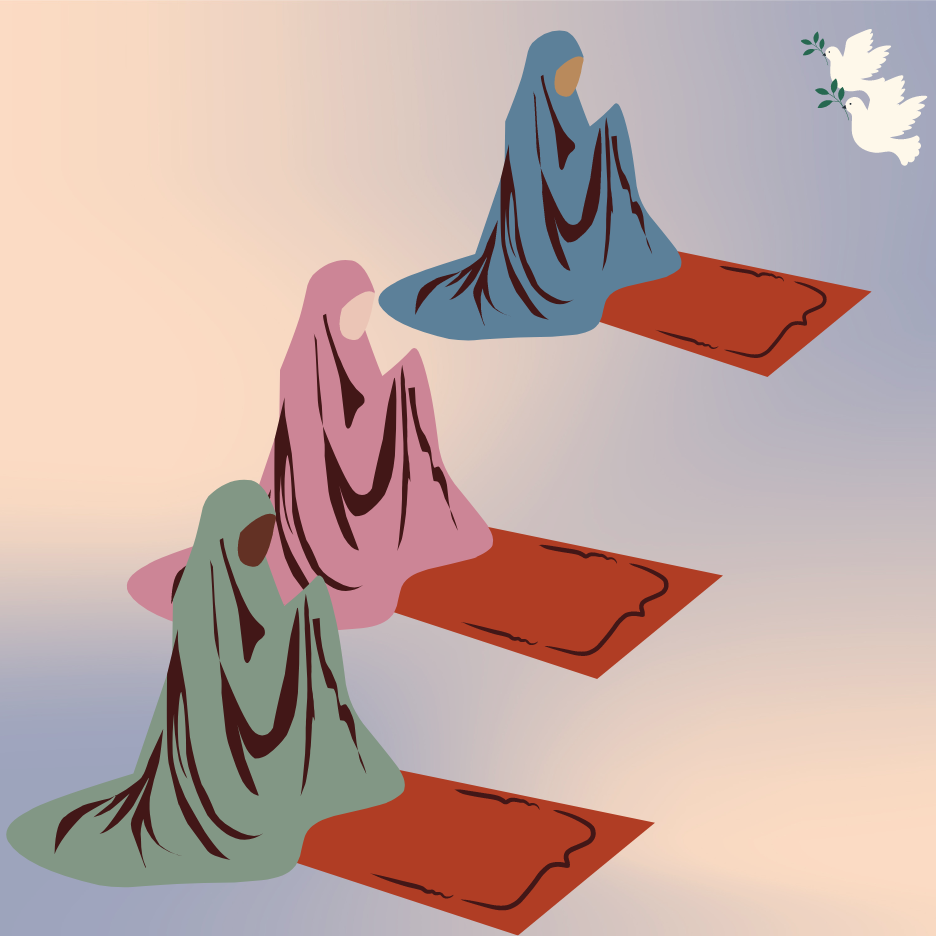
So, prayer is the number one priority when trying to protect yourself from the evil eye. Then, the power of Duá plays a huge role. After each of your obligatory prayers, don’t immediately leave the prayer area after your salam, try sit down for a moment and feel the emotions.
Talk to Allah for even a minute, tell Him about your problems, and ask for clarity and knowledge. Then, do your Istighfar (seeking forgiveness) for another minute, and lastly, raise your hands humbly and call out to Allah by praising Him and send salawat upon our beloved Prophet (SAW).
Ask for whatever you want and believe that Allah will give it to you. In your final request, ask Allah for protection from the evil eye from mankind and Jin.
The truth is, Allah is the only one who can protect you. He (SWT) created everything, so fear Him (SWT) and nothing else. Don’t give the evil eye too much of your attention, but don’t be dismissive about it either.
Acknowledge it and seek refuge in Allah. Focus on your prayers and set aside good time to worship your Creator to the best of your ability.
